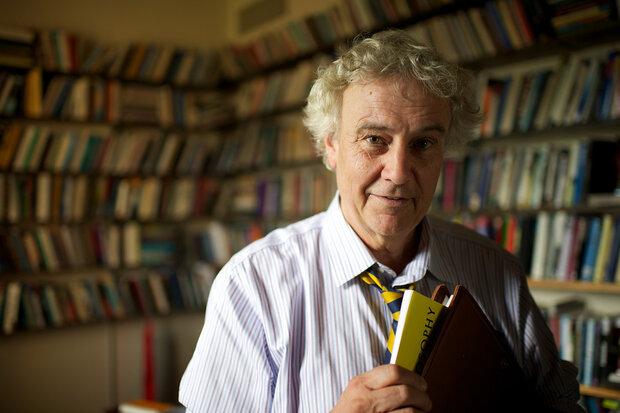With the first ten days of Muharram rolling around, millions of Shia Muslims in Iran and beyond prepare to commemorate the anniversary of the tragic martyrdom of Imam Hussein (AS) and his companions.
Although centuries have passed since that event, it continues to inspire countless numbers of Shia Muslims and even non-Muslims around the world to borrow a page from Imam Hussein’s altruistic book in their quest for freedom and emancipation. Imam Hussein (AS) was a renowned Muslim figure in Medina who was known for piety and virtue.
His martyrdom inspired many uprisings against unjust rulers throughout Islamic history, the most recent of which was the 1979 Islamic revolution in Iran that brought down the oppressive Shah regime.
To know more about Imam Hussein's uprising effects, we reached out to American philosopher Charles Taliaferro. He is specializing in theology and the philosophy of religion. He is an emeritus professor of philosophy at St. Olaf College, a senior research fellow at the Institute for Faithful Research, and a member of the Royal Institute of Philosophy.
What is the most important point about Imam Hussein’s movement that has attracted your attention?
I believe it speaks to all those who resist tyranny, injustice, and oppression. The fact that Imam. Hussein and his people were vastly outnumbered, but fought with courage and without compromise is a shining inspiration to people of all faiths who suffer and fight oppression. The movement is especially important for its favoring of nonviolence; Hussein sought to avoid violence and only fought in battle when there was no other choice
From your point of view was the movement of Imam Hussein a reformation or revolution?
It was and is both, I think, but the movement seems not only about reforming institutions but revolutionizing all people to fight injustice wherever it may be found and no matter what the cost.
After hundreds of years, still, the freedom-lovers of the world keep the memory of Imam Hussein alive in the month of Muharram. Why is the movement of Imam Hussein still dynamic?
Part of the answer may lie in the dynamic energy of his martyrdom. Despite or maybe even because of his heroic death and the defilement of his body could not silence his message of fighting oppression in his own time, it cannot be silenced in our own day.
What are the guidelines and messages of his uprising for the popular uprisings in the contemporary time?
One guideline or message is never to give up, no matter what the cost. In my country, the spectre of systematic racism is a tyranny, and truth-telling by politicians is in jeopardy. Hussein's commitment to justice and truth are needed more than ever.
Imam Hussein fought against Yazid to institutionalize the message of freedom and resistance to oppression. In your opinion, who are the oppressors of today's world?
Tragically, there are leaders in many countries who seek to silence dissent and pleas for freedom. An example from today's world? The regime in Myanmar executing four advocates of democracy this summer stands out. The example and calling of Hussein is that we should be ever vigilant in seeking to fight injustice.
Interview by Payman Yazdani


























Your Comment